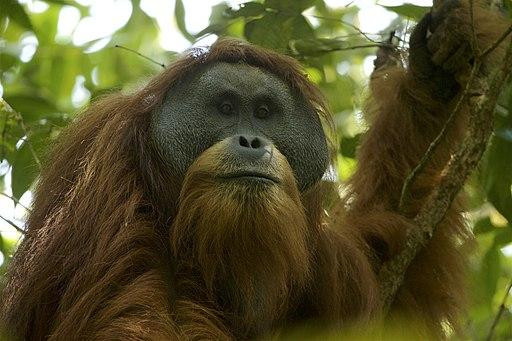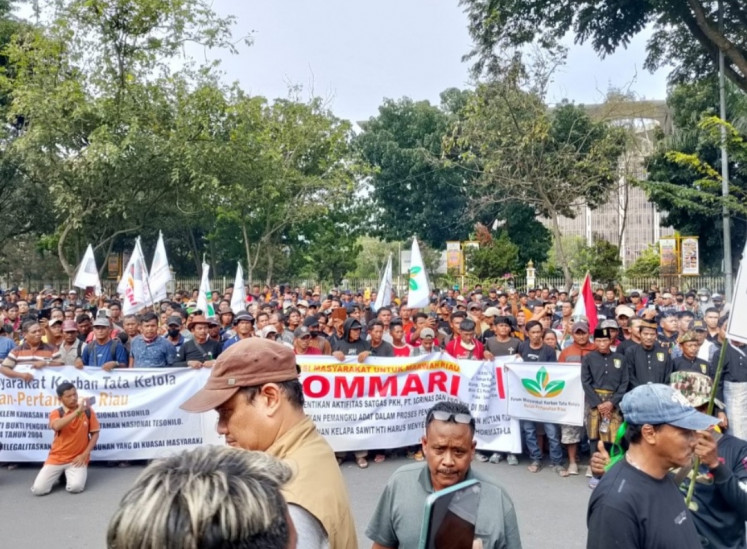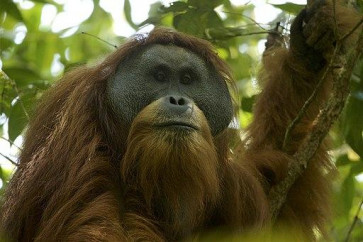Popular Reads
Top Results
Can't find what you're looking for?
View all search resultsPopular Reads
Top Results
Can't find what you're looking for?
View all search resultsScientists discover critically endangered Tapanuli orangutans in new location
A research team from the Orangutan Information Centre (OIC) recently identified several Tapanuli orangutans in a peat forest near Lumut Maju Village, Central Tapanuli, approximately 32 kilometers north of the Batang Toru ecosystem.
Change text size
Gift Premium Articles
to Anyone
F
or the first time, scientists have confirmed the presence of the critically endangered Tapanuli orangutan (Pongo tapanuliensis), the world’s rarest great ape, outside its only previously known habitat in the Batang Toru ecosystem in North Sumatra.
A research team from the Orangutan Information Centre (OIC) recently identified several Tapanuli orangutans in a peat forest near Lumut Maju Village, Central Tapanuli, approximately 32 kilometers north of the Batang Toru ecosystem.
According to Onrizal, an associate professor of ecology and conservation of tropical forests at North Sumatra University (USU), the finding represents a major milestone in efforts to protect the critically endangered species. For years, researchers have been searching for evidence of Tapanuli orangutans in forests across North Sumatra, beyond the Batang Toru ecosystem.
“This is the first time researchers have managed to find them beyond their known habitat. It also supports predictions made in a 2021 scientific publication, which suggested that the Lumut area could serve as a potential habitat for the species,” Onrizal said on Monday.
Onrizal added that the Lumut peat forest, where the Tapanuli orangutan was discovered, was once connected to the larger Batang Toru ecosystem. However, agricultural expansion and the spread of human settlements have long isolated the area from Batang Toru.
Syafrizaldi, executive director of the OIC, explained that scientists began investigating the Lumut peat forest as a potential Tapanuli orangutan habitat in May 2022, following reports from local villagers who claimed to have seen orangutans in the area.
The Lumut peat forest is officially categorized by the government as an “area for other uses” (APL), which is land designated for non-forestry activities such as development, housing, agriculture, plantations and investment.



















